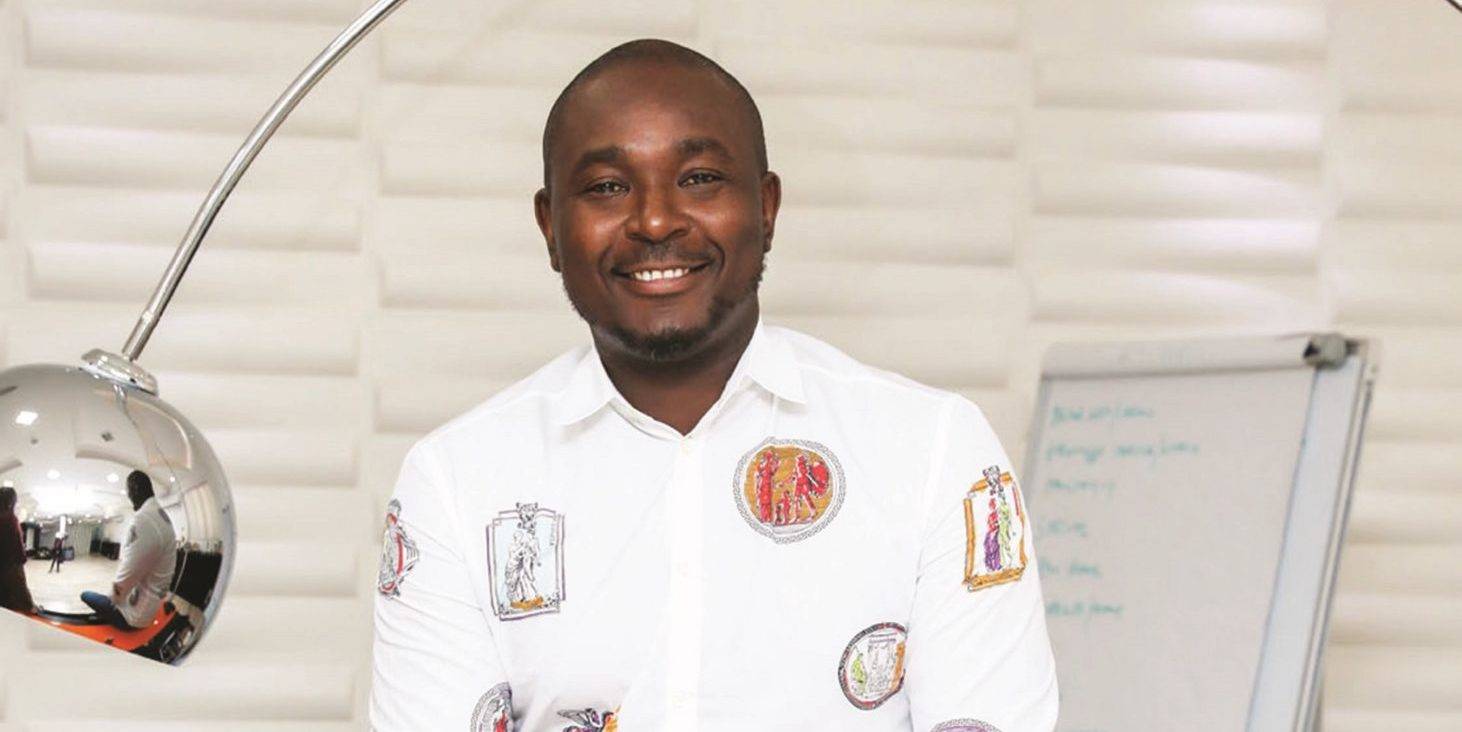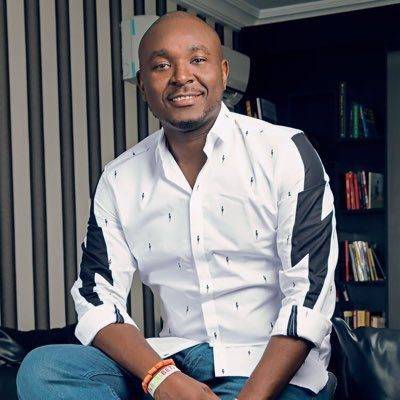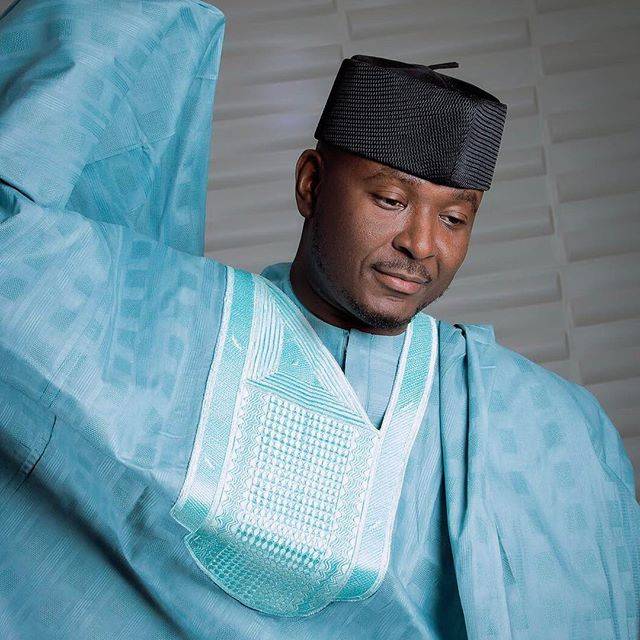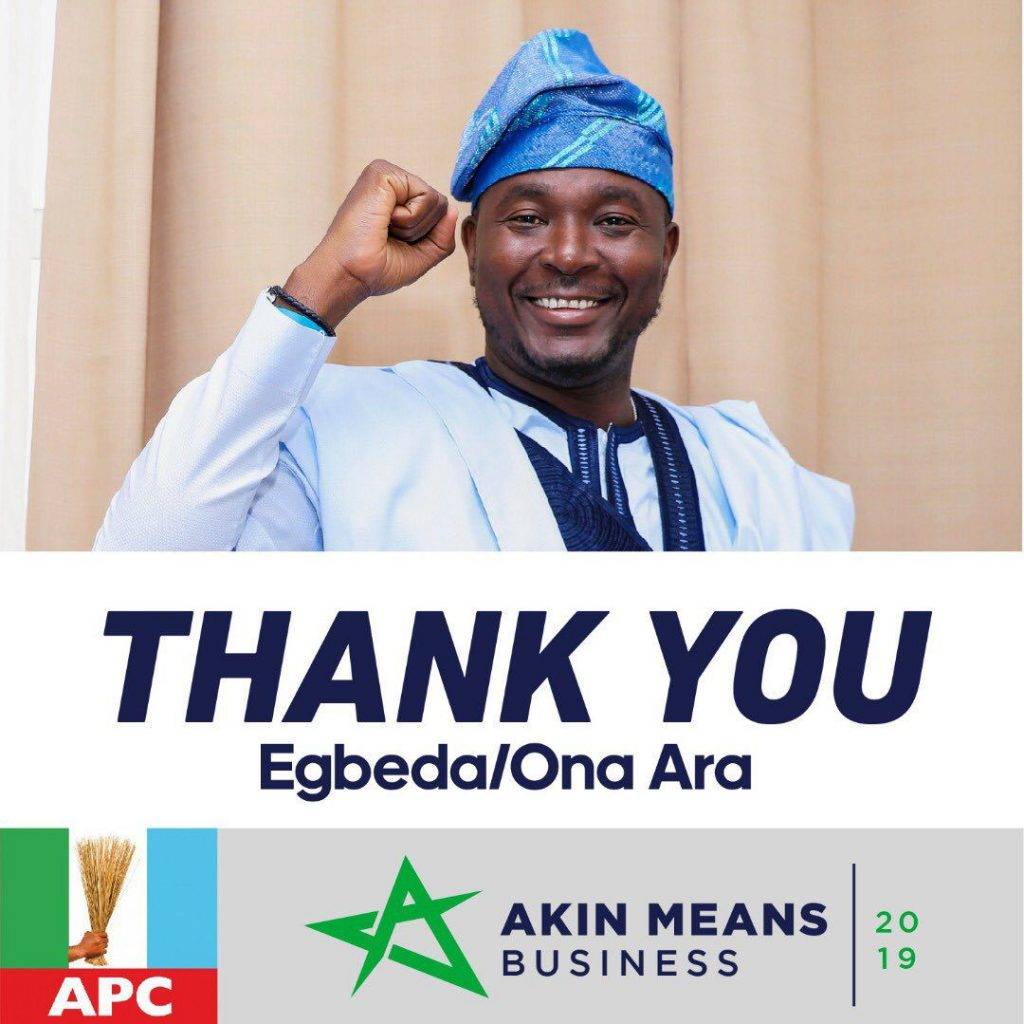Most Entrepreneurs Are Big On Hard Work & Drive – But Here’s One Who’s Made It Big In The “Luck Business”

Hard work and determination are a common feature of some of the world’s most successful entrepreneurs, but “luck” should never be underestimated. Here’s one businessman who has thrived in the “luck business.”
Four months into his stay in the U.K., Akin Alabi was still pretty much stuck in square one. He had called it quits with his reasonably well-off business in Nigeria, gathered all the funds he could get his hands on, and embarked on a journey to what he thought was the land “flowing with milk and honey.” Except that he hadn’t found that much milk, let alone honey.
During his time in the U.K., Alabi had tried his hand at various jobs and a number of small businesses, but nothing had really come off for him. Plus, his visa was a few weeks away from expiration and he was now staring down the barrel of illegal immigrant status. In many respects, things hadn’t quite panned out the way he had hoped, and it was time to throw in the towel.
Like the biblical prodigal son who took all the money he could get and moved to a faraway land only to return to his father’s house when the funds dried up, Alabi had made up his mind to return to Nigeria and really push it on the business front this time.
In truth, things weren’t exactly abysmal when he closed shop and migrated to the U.K. He had something going on for him there, there was potential. With a little more investment in finance and time, he thought, things should take shape.
And so, he began to plot his return back home, even though it looked like the aim for the trip had been defeated. But there was going to be one last hoorah. And it came from somewhere he hadn’t quite given that much thought.

Founder nairabet
Where the Scots are known for their kilts and the Irish for their stouts, the English boss it when it comes to sports betting particularly football. But Alabi had never really cared for that himself — up until he had his first encounter with the bookies.
It was a chance encounter. Alabi was holed in up Milton Keynes counting the days until he returned to Nigeria. Then, his brother who lived in London at the time called him and asked him to make a bet on a football game in an online sports shop, so they could try their luck and possibly win some cash.
The gamble paid off, Alabi won some cash. Then he played again and lost some cash, and won again the next time he played. The encounter had made him realise that there was something there.
Before long, he began to think of how exciting the whole thing was and how people back home will embrace it given that there weren’t any such platforms in Nigeria at the time. Considering how big football is in Nigeria, he had no doubt about the sort of response he would get from what he thought was a “starving crowd.”
Then, he swung into action. His first move was to whip up a 14-page paper titled “How To Make Money From Football Betting.” He put the paper online and also worked his contacts in Nigeria. With the help of a friend, he was able to run an advert in the local dailies back home.
It proved a profitable move. Having invested around USD 555.00 into the entire operation, he made about USD 1.2 K. It didn’t exactly seem like a gold mine but the reception and demand his online content got was going to eventually morph into a new customer base craving a platform on which they can incentivise their love for sports.
Soon, Alabi started to get numerous calls from people who had purchased the information product. They were complaining that the websites he had recommended were not designed for Nigeria and were willing to send him between USD 100.00 to USD 750.00 to place bets for them abroad.
This got him thinking. Since there weren’t any platforms like that in Nigeria to cater to this market, he knew he would have to build one himself when he returned home. That was, in fact, going to be his next business.
The thing is, Akin Alabi has always had an eye for opportunity, and the balls to try luck too. The businesses he ran in Nigeria before leaving for the U.K. all stemmed from meeting needs that were hidden in plain sight. Nigerians have been crazy about football since time immemorial, but no one had done anything to give the fans something to look forward to in addition to cheering for their teams.

For instance, right after he obtained a Diploma in Business Administration in 2001, he noticed the efforts of many Nigerians to migrate to Canada in search of greener pastures. According to data from the Canadian Immigration Service, as many as 27,625 immigrants from Nigeria were residing in Canada by 2011.
Having been refused a visa to Canada himself, he decided to put together an information resource based on his own experience with the botched visa application. He was betting on first-time applicants paying for the knowledge as a guide that will help them get through the process with minimal fuss.
After putting together a decent information product on the Canadian visa application process, he took it to the market in 2003. It was a hit. It cost USD 28.00 apiece and he sold out in a couple of months.
Then, he did something similar on; How To Make Money Online, based on the success of his first venture. That too was a hit. Then, it occurred to him to have things formalised by registering his growing business with Corporate Affairs Commission (CAC).
Alabi took his business through the registration process without even needing a lawyer. It was seamless and he realised how much people would appreciate such a resource. He, thus, made a DIY information product on the subject. That too did well in the market. And that was how he made a business out of learning about stuff, packaging it as an information resource, and selling it online.
It’s a booming industry. Data from Stratistics MRC have it that the global e-learning market accounted for USD 165.21 Bn in 2015 and is expected to reach USD 275.10 Bn by 2022, posting a 7.5 percent CAGR during the forecast period.
Alabi was leveraging on the flexibility, low-cost, and easy accessibility of the market. Coupled with the willingness of people to grab anything offered online during the dot-com boom of the early 2000s, it looked like he had struck gold.
But he hadn’t. Things slowed down eventually. Business stalled as the years rolled by. And Alabi himself began to crave something new. Hence, the move to the U.K. Now, though, he was on the cusp of something big.

When Alabi finally returned to Nigeria, he knew exactly what he wanted to do. He just didn’t know how, nor did he entirely have the means to make it happen. Apart from the bottlenecks associated with stiff regulation and steep taxation, Alabi needed to come up with at least USD 1 Mn for the software with which the sports betting platform would be built.
As he couldn’t get his hands on that much money, he reached a compromise with a local developer and together, they created a platform which the money he had could pay for.
But it didn’t matter. It was an instant hit all the same. Alabi had calculated correctly, Nigerian sports lovers had basically been waiting a long time for something like his platform to touch down on home soil. The platform went from zero to a hundred real quick.
Akin Alabi called his sports betting platform, nairabet, and it went live in 2009. At 42, he is the proud founder of Nigeria’s first indigenous sports betting platform. And even as space appears to be somewhat crowded these days, the platform remains on the top end of the food chain.
Today, nairabet; a major player in the online sports betting market, has steadily transformed itself from just a football betting platform to a robust sports booking platform covering digital, SMS, apps, and retail betting. And just recently, they rolled out a new million-euro software upgrade.

Besides sports betting, Alabi owns a small football club, has a book-writing business, and is into digital marketing, business coaching and seminars. He also does some philanthropy and dabbles into politics every once in a while — currently an elected member of parliament in Nigeria. He is easily one of the youngest, self-made millionaires in Africa.
Growing up, he just wanted to make enough money to be able to afford whatever he wanted, but these days, he’s about touching lives with both his wealth of wallet and his wealth of knowledge. He may have made his fortune in the “luck business”, but don’t we all need some luck every once in a while?
Featured Image Courtesy; Forbes